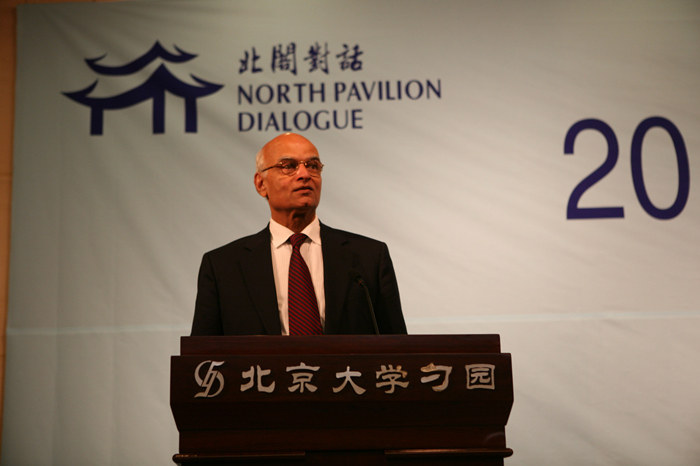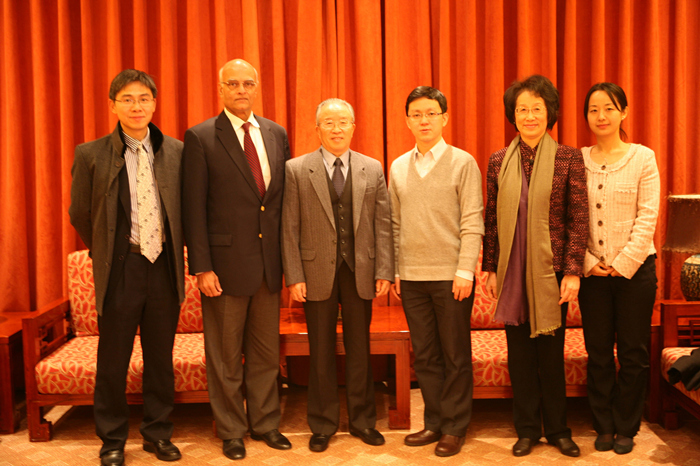On December 1, 2014, former Indian National Security Advisor Sivasankara Menon attended the first "North Pavilion Dialogue" at the invitation of the Institute of International & Strategic Studies (IISS), Peking University (PKU) and delivered a speech entitled "India's National Security Strategy and Sino-Indian relations". Dai Bingguo, former State Councilor and Honorary President of IISS, also attended the dialogue. Prof. Yuan Ming, Vice President of IISS, hosted the lecture. Prof. Wang Bangwei, Director of the Oriental Studies Center of PKU, commented on the lecture at invitation and participated in the interaction.

Mr. Menon opened the lecture with a brief review of the change of current world situation and international system. He analyzed the role transformation of Asia in today's world order. He held that the time for Asia's revival and return to the international stage is coming. Meanwhile, threats to international order are also changing. Terrorism, extremism, information security, energy and environmental crisis and the lack of effective international mechanisms are all affecting the existing order. The goal of India's national security strategy is to protect India against these threats. In this context, it is very important for India and China to deepen relations on the basis of mutual understanding. As Asia's two largest countries, India and China have shared interests in the respects of realities and functional orientation. The relationship between the two countries has already gone beyond the bilateral scope. Summarizing the bilateral relations between India and China, Mr. Menon thought that currently, there are no fundamental differences between India and China. The territorial disputes should and can be settled down through negotiations. In the future, the two countries should work together to resolve international issues such as terrorism, climate change and energy security, rebalance the Indian Ocean - Pacific region, and build a new international order and mechanism.
After Mr. Menon's speech, Prof. Wang Bangwei added a few points from the historical and cultural perspectives. He praised that Mr. Menon's speech as very encouraging, and said that Sino-Indian relations has entered the stage of healthy development and has become one of the most important bilateral relationship in Asia. He believed that Sino-Indian exchange should start from the exchange between young people. Prof. Wang himself is currently involved in the rebuilding of Nalanda University. As a famous Buddhist temple and academic center in ancient India, the university is not only one of the oldest universities in the world, but also an important symbol of Sino-Indian cultural exchange, with the monk Xuanzang ever studied there. The Chinese government is actively supporting the rebuilding to promote Sino-Indian cultural exchange.

At the invitation of Prof. Yuan Ming, IISS's Honorary President Dai Bingguo made comments on the lecture. Looking back on his memory of India in his diplomatic career, he spoke on topics such as what kind of country India is, how the relationship between China and India will develop, and how to deal with the border issue etc. He also expressed the hope that the students will dedicate to the development of Sino-Indian relations.
Associate Professor Guan Guihai, Prof. Zhang Qingmin, Associate Professor Han Hua, Associate Professor Gui Yongtao and other scholars from the School of International Studies (SIS), PKU, as well as nearly 200 students participated in the lecture and interaction.

